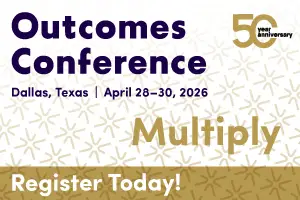

Effectively Discerning Dissent and Disloyalty
Dissent, in the context of organizational leadership, is expressing or holding opinions at variance with those held by other organizational leaders, especially those at the top of the organization. Effective leaders mine out, like precious gold in the organization’s veins, the dissenting opinions of others with fierce determination to ground decision-making on the bedrock of ideation. These leaders refuse the mistaken and proud notion that they always know what is best for the organizations they lead.
Conversely, disloyalty defines a traitor as someone whose treacherous, dangerous, or deceptive acts oppose the mission, belief statements, and core values of the organizations they help lead.
Better Together
Organizational leaders should work together to define what about the organization must never change. They should work together to remain faithful to the mission and preserve belief statements and core values at all costs. Then, all else should be open to change! One can hold deserting views yet be among the most supportive and loyal leaders in the entire organization!
Welcoming Differences
There is a clear difference between dissent and disloyalty!
According to Sonnefeld (2022), CEOs who do not WELCOME dissent try to “pack the court,” and we have learned from scandals from the past (Enron, Arthur Anderson, Tyco, etc.) that boards would be well advised to recognize this difference. The best, most effective leaders invite dissent! According to Finkelstein 2004, habit #1 of unsuccessful CEOs ruthlessly eliminates anyone who isn’t behind them! He explains that by eliminating all dissenting and contrasting viewpoints, destructive CEOs cut themselves off from their best chance of seeing and correcting problems as they arise.
Leader Effectiveness
Ineffective leaders arrogantly believe they hold all of the answers to the problems their organizations they lead face. Effective leaders do not think they have all of the correct answers. They don’t even believe they have all of the right questions!
Finkelstein’s habit #3 of spectacularly unsuccessful executives states that these leaders think they have the correct answers! What hubris! Leaders who think they have all of the correct answers shut out other points of view, i.e., dissent, and treat those who express opinions that differ from theirs as disloyal.
The Power of Humility and Vulnerability
The humility and vulnerability of admitting one doesn’t have all the correct answers can be the strength that galvanizes people with problems to find a breakthrough solution. In other words, “not having the answer is the answer after all,” according to Cathy Trower’s book, The Practitioner’s Guide to Governance as Leadership.
What we need today are organizational leaders who act as steward leaders, putting service to God and others over self-interest. These effective steward leaders will listen to dissenting viewpoints, refuse to label dissenters as disloyal mistakenly, keep these leaders around instead of marginalizing or eliminating them, replace pride with humility, and establish a culture where the best ideas prevail!
Faithful steward leaders understand that iron sharpens iron! Faithful (loyal) are the wounds of a friend!
####
Dr. Brian S. Simmons is a consultant on effective governance and strategic planning, an executive coach, and Head of School for Lakeside Christian Academy. He exists as a visionary builder to further the kingdom of God through Christian education, teaching, and influencing others.
Dr. Simmons will also lead a Breakthrough Workshop at Outcomes Conference 2025 on Succession Planning and Steward Leadership.

The Spring Term Enrollment is Open through April 7, 2025!
LEARN MORE


Featured Articles
CLA Membership
Join Christian
Leadership Alliance
A commitment to membership unlocks a more comprehensive access to content, community, and experiential learning. Here are the three membership exclusives that exist to significantly accelerate your professional growth and personal development.








